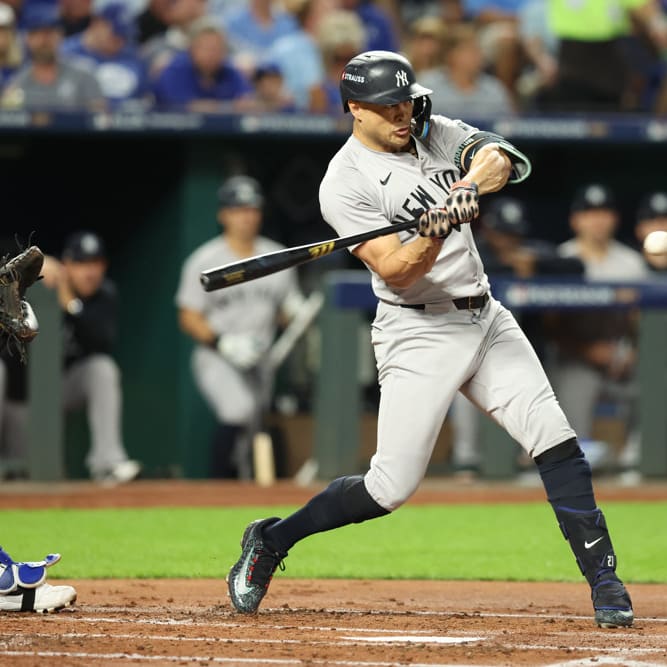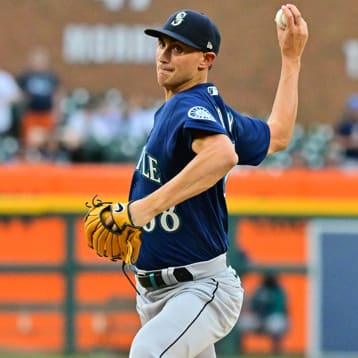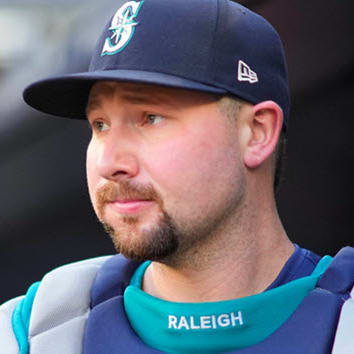Last year in this space, we discussed the impact of Major League Baseball's most recent collective bargaining agreement (CBA), which set forth new rules governing MLB's free agent compensation system and First-Year Player draft. Those new rules, which took effect for the first time last offseason, resulted in a lengthy unemployment for a handful of high-quality players until late into spring training, or even through the start of the season. Well, those same rules are again having a significant impact on the fantasy game.
Last season, Stephen Drew batted .253 with 57 runs, 67 RBI and swatted 13 home runs in 124 games in with the Boston Red Sox. While admittedly not earth-shattering numbers, Drew was a more than serviceable option, particularly in deeper leagues, at a relatively shallow shortstop position. On the opposite coast, Kendrys Morales once again turned in a fine season, his first with the Seattle Mariners after six years with the Los Angeles Angels of Anaheim. Showing his durability in 156 games, Morales clubbed 23 home runs, while adding 80 RBI and 64 runs to support a solid .277 average. Those numbers were good enough to rank him 14th among qualified first basemen according to ESPN's player rater. Yet, as the first week of the MLB season came and went, both Drew and Morales remain without an MLB employer, a direct result of MLB's free agent compensation rules.
Let's recap the rules*:
• Type A and Type B free-agent designations have been eliminated. Teams now
Last year in this space, we discussed the impact of Major League Baseball's most recent collective bargaining agreement (CBA), which set forth new rules governing MLB's free agent compensation system and First-Year Player draft. Those new rules, which took effect for the first time last offseason, resulted in a lengthy unemployment for a handful of high-quality players until late into spring training, or even through the start of the season. Well, those same rules are again having a significant impact on the fantasy game.
Last season, Stephen Drew batted .253 with 57 runs, 67 RBI and swatted 13 home runs in 124 games in with the Boston Red Sox. While admittedly not earth-shattering numbers, Drew was a more than serviceable option, particularly in deeper leagues, at a relatively shallow shortstop position. On the opposite coast, Kendrys Morales once again turned in a fine season, his first with the Seattle Mariners after six years with the Los Angeles Angels of Anaheim. Showing his durability in 156 games, Morales clubbed 23 home runs, while adding 80 RBI and 64 runs to support a solid .277 average. Those numbers were good enough to rank him 14th among qualified first basemen according to ESPN's player rater. Yet, as the first week of the MLB season came and went, both Drew and Morales remain without an MLB employer, a direct result of MLB's free agent compensation rules.
Let's recap the rules*:
• Type A and Type B free-agent designations have been eliminated. Teams now have to make a qualifying offer to be eligible for draft-pick compensation.
• The value of a qualifying offer is determined annually by averaging the top 125 player salaries from the previous year. In the 2013-2014 offseason, the qualifying offer was approximately $14 million. All qualifying offers are worth the same amount and for the same duration (one year).
• If a team doesn't make a qualifying offer, the player eligible for free agency may sign anywhere, uninhibited.
• If a team makes a qualifying offer, the aforementioned player may either accept the one-year deal or decline it and enter free agency.
• If a player declines a qualifying offer, he can still re-sign with that team. However, if he signs elsewhere, his new team will have to surrender a top draft pick, subject to some exceptions.
*A more detailed analysis of the free agent compensation rules and their effect on free agency, the trade deadline and stash-worthy prospects can be seen in last year's two-part article.
This offseason, both Drew, one of Boston's World Series heroes, and Morales, a former top-five MVP finisher, declined qualifying offers of $14.1 million from the Red Sox and Mariners, respectively, in order to test the free agent market. It should surprise no one that Scott Boras is the super agent representing both players, and he has made his opinion on the compensation rules no secret.
Unfortunately for Boras, ranting and raving is unlikely to help Drew and Morales find a new home any quicker. There's almost always little incentive for teams to shell out big dough to non-elite players. But with the new CBA putting a new-found emphasis on younger, and more importantly, cost-controlled talent, this becomes even truer, especially when teams are forced to forfeit a coveted first-round draft pick in order to sign a player like Drew or Morales, who are essentially "tied" to a draft pick after turning down a qualifying offer.
According to reports, Boras is telling teams that he could soon land a deal for at least Morales. Still, things are tricky, as some of the interested parties are reportedly debating between signing him (or even Drew) now, or waiting until after the June First-Year Player draft, when the players would no longer be subject to draft pick compensation. By waiting until after the draft is complete, a signing team would not have to surrender its 2015 first-round draft pick**, a much more palatable deal considering both Drew and Morales would still likely command near an eight-figure salary.
**The wild card to sign either Morales or Drew remains a team that has a top-ten draft pick, as top-ten picks are exempt from the rule and such a team would not have to forfeit its first draft pick, but rather its second-highest pick.
Currently, both Drew and Morales are facing live pitching in workouts in Miami – Joel Pineiro threw to them before signing a minor league deal with the Cubs, and Freddy Garcia, released by the Braves, threw to them last week. But both players likely would need several weeks of game action in the minors to get ready. Still, with a number of contending teams having suffering significant losses in the first week of the season – including Jose Iglesias in Detroit, Jose Reyes in Toronto and Mark Teixeira in New York – both Drew and Morales should be on the radar as potential contributors for fantasy teams in need of some early assistance should they finally land with a big league club.










